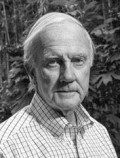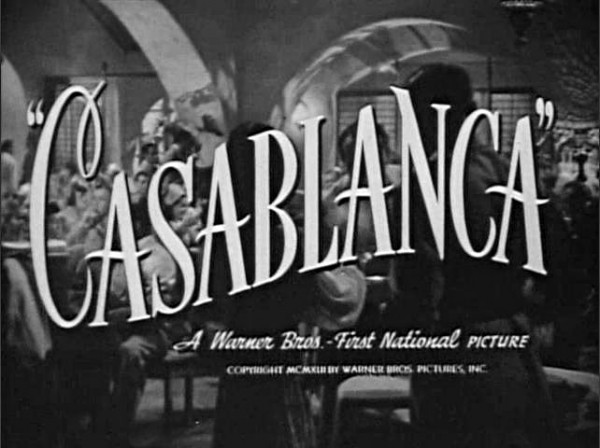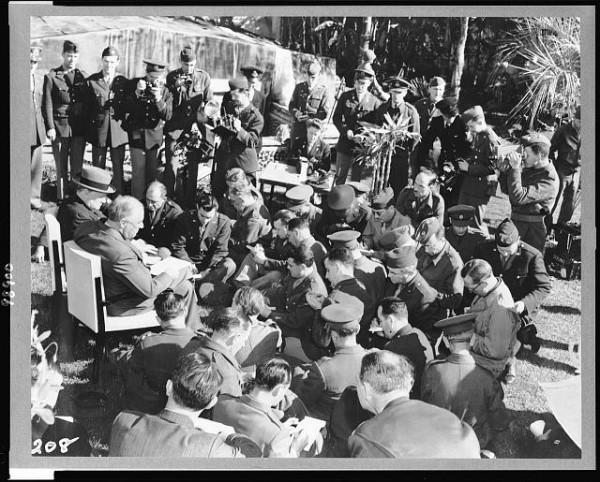By David Roll
He was a spectral figure in the Franklin Roosevelt administration. Slightly sinister. A ramshackle character, but boyishly attractive. Gaunt, pauper-thin. Full of nervous energy, fueled by caffeine and Lucky Strikes.
Hopkins was an experienced social worker, an in-your-face New Deal reformer. Yet he sought the company of the rich and well born. He was a gambler, a bettor on horses, cards, and the time of day. Between his second and third marriages he dated glamorous women — movie stars, actresses and fashionistas.
It was said that he had a mind like a razor, a tongue like a skinning knife. A New Yorker profile described him as a purveyor of wit and anecdote. He loved to tell the story of the time President Roosevelt wheeled himself into Winston Churchill’s bedroom unannounced. It was when the prime minister was staying at the White House. Churchill had just emerged from his afternoon bath, stark naked and gleaming pink. The president apologized and started to withdraw. “Think nothing of it,” Churchill said. “The Prime Minister has nothing to hide from the President of the United States.” Whether true or not, Hopkins dined out on this story for years.
On the evening of 10 May 1940 — a year and a half before the United States entered the Second World War — Roosevelt and Hopkins had just finished dinner. They were in the Oval Study on the second floor of the White House. As usual, they were gossiping and enjoying each other’s jokes and stories. Hopkins was forty-nine; the president was fifty-seven. They had known one another for a decade; Hopkins had run several of Roosevelt’s New Deal agencies that put millions of Americans to work on public works and infrastructure projects. Franklin and Eleanor Roosevelt had consoled Harry following the death of his second wife, Barbara, in 1937. The first lady was the surrogate mother of Hopkins’s daughter, Diana, age seven. Hopkins had become part of the Roosevelt family. He was Roosevelt’s closest advisor and friend.
The president sensed that Harry was not feeling well. He knew that Hopkins had had more than half of his stomach removed due to cancer and was suffering from malnutrition and weakeness in his legs. Roosevelt insisted that his friend spend the night.
-
Hopkins and Barbara Duncan
http://blog.oup.com/wp-content/uploads/2013/01/hopkinsbarbaraduncan.jpg
Returning to New York after a trip to Europe in the summer of 1934.
-
Hopkins at the 1940 Democratic national convention
http://blog.oup.com/wp-content/uploads/2013/01/hopkins1940demconv.jpg
In Chicago with daughter Diana, age seven. From left to right behind them: John Hertz, founder of the Hertz car rental empire, thoroughbred race horse owner and a close friend of Hopkins; David, Hopkins’ twenty-eight-year-old son; and Edwin Daley
-
Under the fourteen-inch guns of the British battleship Prince of Wales
http://blog.oup.com/wp-content/uploads/2013/01/underguns.jpg
In August 1941, Churchill, Hopkins and British officers discuss the forthcoming meetings with President Roosevelt off the coast of Newfoundland in what became known as the Atlantic Conference.
-
Hopkins conferring with Roosevelt
http://blog.oup.com/wp-content/uploads/2013/01/conferringwroosevelt.jpg
In the Oval Study, June 1942.
-
Rabat, Morocco
http://blog.oup.com/wp-content/uploads/2013/01/morocco.jpg
After visiting American troops in Rabat, Hopkins, General Mark Clark (second from left), Roosevelt, and General George Patton (right) discuss the North Africa campaign during a lunch in the field.
-
Roosevelt celebrating his sixty-first birthday
http://blog.oup.com/wp-content/uploads/2013/01/birthday.jpg
In the roomy cabin of his Boeing Clipper with Admiral Leahy (left), Hopkins and Captain Howard Cone, the Clipper commander (right). They were on the final leg of their return from the Casablanca conference.
-
At the Tehran conference outside the Soviet embassy
http://blog.oup.com/wp-content/uploads/2013/01/tehran.jpg
December 1943, left to right: General George Marshall shaking hands with British Ambassador to the Soviet Union, Archibald Clark Kerr, Hopkins, V. N. Pavlov (Stalin’s interpreter), Joseph Stalin and Vyacheslav Molotov (with mustache).
-
Louise “Louie” Hopkins
http://blog.oup.com/wp-content/uploads/2013/01/louiselouishopkins.jpg
Louise “Louie” Hopkins charmed the Russian officers as she and Harry toured Berlin on their way back from Moscow in June 1945.
Hopkins was the man who came to dinner and never left. For most of the next three-and-one-half years Harry would live in the Lincoln suite a few doors down the hall from the Roosevelts and his daughter would live on the third floor near the Sky Parlor. Without any particular portfolio or title, Hopkins conducted business for the president from a card table and a telephone in his bedroom.
During those years, as the United States was drawn into the maelstrom of the Second World War, Harry Hopkins would devote his life to helping the president prepare for and win the war. He would shortly form a lifelong friendship with Winston Churchill and his wife Clementine. He would even earn a measure of respect and a degree of trust from Joseph Stalin, the brutal dictator of the Soviet Union. He would play a critical role, arguably the critical role, in establishing and preserving America’s alliance with Great Britain and the Soviet Union that won the war.
Harry Hopkins was the pectin and the glue. He understood that victory depended on holding together a three-party coalition: Stalin, Churchill, and Roosevelt. This would be his single-minded focus throughout the war years. Churchill was awed by Hopkins’s ability to focus; he often addressed him as “Lord Root of the Matter.”
Much of Hopkins’s success was due to social savvy, what psychologists call emotional intelligence or practical intelligence. He knew how to read people and situations, and how to use that natural talent to influence decisions and actions. He usually knew when to speak and when to remain silent. Whether it was at a wartime conference, alone with Roosevelt, or a private meeting with Stalin, when Hopkins chose to speak, his words were measured to achieve effect.
At a dinner in London with the leaders of the British press during the Blitz, when Britain stood alone, Hopkins’s words gave the press barons the sense that though America was not yet in the war, she was marching beside them. One of the journalists who was there wrote, “We were happy men all; our confidence and our courage had been stimulated by a contact which Shakespeare, in Henry the V, had a phrase, ‘a little touch of Harry in the night.’”
Hopkins’s touch was not little nor was it light. To Stalin, Hopkins spoke po dushe (according to the soul). Churchill saw Hopkins as a “crumbling lighthouse from which there shown beams that led great fleets to harbour.” To Roosevelt, he gave his life, “asking for nothing except to serve.” They were the “happy few.” And Hopkins had made himself one of them.
 David Roll is the author of The Hopkins Touch: Harry Hopkins and the Forging of the Alliance to Defeat Hitler. He is a partner at Steptoe & Johnson LLP and founder of Lex Mundi Pro Bono Foundation, a public interest organization that provides pro bono legal services to social entrepreneurs around the world. He was awarded the Purpose Prize Fellowship by Civic Ventures in 2009.
David Roll is the author of The Hopkins Touch: Harry Hopkins and the Forging of the Alliance to Defeat Hitler. He is a partner at Steptoe & Johnson LLP and founder of Lex Mundi Pro Bono Foundation, a public interest organization that provides pro bono legal services to social entrepreneurs around the world. He was awarded the Purpose Prize Fellowship by Civic Ventures in 2009.
Subscribe to the OUPblog via email or RSS.
Subscribe to only American history articles on the OUPblog via email or RSS.
The post Who was Harry Hopkins? appeared first on OUPblog.

By David L. Roll
Seventy years ago this month, Americans came to know Casablanca as more than a steamy city on the northwest coast of Africa. On 23 January 1943, the film Casablanca, starring Humphrey Bogart and Ingrid Bergman, a tale of doomed love and taking the moral high ground, was released to packed movie houses. The next day, a Sunday, President Franklin Roosevelt ended two weeks of secret World War II meetings in Casablanca with Prime Minister Winston Churchill by announcing at a noon press conference, in a sunlit villa garden fragrant with mimosa and begonia, that “peace can come to the world,” only through the “unconditional surrender by Germany, Italy and Japan.”
The Academy Award-winning movie, of course, became a classic.

Title screen of Casablanca, the Academy-Award winning classic directed by Michael Curtiz and starring Humphrey Bogart, Ingrid Bergman, and Paul Henreid. Image in the public domain via Wikimedia Commons.
Similarly, Roosevelt’s supremely confident proclamation reverberated throughout the world and shortly entered the history books. Choosing just a few words, the president for the first time sought to firmly establish Allied war aims and determine the framework of the peace.
But both the emotional power of the film and the president’s lofty words blurred if not obscured some inconvenient facts. American audiences must have been persuaded that their government, like Bogart’s Rick, would do the right thing by turning its back on the Nazi collaborators (the French puppet government, the Vichy regime) and casting its lot to fight alongside Charles de Gaulle’s Free French. In fact, the Roosevelt administration did not act to cut its ties with Vichy, continued to rely on Nazi sympathizers to run the Moroccan government, and did not officially recognize de Gaulle until October 1944. Like the political and military realities confronting the Obama administration today in Afghanistan, Pakistan, Syria and Iran, the situation on the ground in North Africa in 1943 was murky, complicated and ambiguous. It did not lend itself to the high-minded moral clarity that Hollywood screenwriters enjoy.
So too the policy of unconditional surrender announced by the US president at Casablanca, and endorsed by the British prime minister, masked some stark realities. Unless and until the Soviet Union decided once and for all to reject German peace-feelers and its Red Army had achieved sufficient size and strength to break the back of Germany’s military machine, “unconditional surrender” could be nothing more than a hollow slogan. Though the president’s confident rhetoric was ostensibly aimed at lifting the morale of the populations of the United States and Great Britain, it was in fact directed at the man who was conspicuously absent from the Casablanca conference—Joseph Stalin. Roosevelt was aware that many would argue that the unconditional surrender policy would prolong the war by encouraging the Nazis to fight to the last man and woman, but he believed that this danger was outweighed by the need to allay Soviet suspicions that the Americans and British would conspire to negotiate a separate armistice with Germany. Roosevelt saw his policy as another way to convince Stalin of his goodwill, a political and psychological substitute for a second front—a phrase that would keep the Soviets in the war, killing German soldiers by the bushel.

President Roosevelt, with Prime Minister Winston Churchill at his side, reading the “unconditional surrender” announcement to the assembled war correspondents. Casablanca, French Morocco, Jan 1943. Image courtesy the Library of Congress.
The policy announced by Roosevelt at Casablanca not only failed to acknowledge the essential role of the Soviets, it also did not have the impact on surrender and peace that he intended. Italy would soon surrender under “conditional” terms. Japan would eventually surrender on condition that her Emperor would be retained. And FDR’s dream that he would turn the page on balance-of-power diplomacy in central Europe and broker the postwar peace would be shattered by the man who could not attend the Casablanca conference in January 1943 because he was busy directing the crucial struggle at Stalingrad.
In the years since Casablanca, experience has shown that presidents would do well to emulate Roosevelt by defining war goals and outlining a framework for peace before engaging the enemy (or at least at an early stage of the conflict). Indeed, the failures of presidents Truman, Johnson, George H. W. Bush, and George W. Bush to do so in Korea, Vietnam, Panama, Iraq, and Afghanistan seriously soiled their legacies.
Still, the lessons of Casablanca run much deeper and are far more nuanced than the articulation of war aims and peace terms. Casablanca—the movie and the conference—teaches us that human conflict, particularly armed conflict, usually does not end on predictable terms and in conformance with unilateral decrees. Often family, clan, or tribal affiliations trump national loyalties making it difficult if not impossible to distinguish between friends and enemies, neutrals and belligerents. Religious and cultural differences befuddle American peacekeepers. These problems test the mettle of the Obama administration today in places like Benghazi, Waziristan, Damascus, and Teheran.
In Casablanca, Rick was led to believe that he had come to that city because of the healthful waters. Told by Captain Renault that he was in the desert, Rick responded, “I was misinformed.” When it comes to waging wars and structuring peace, US presidents and policymakers should humbly revisit the lessons of Casablanca.
David L. Roll is a partner at Steptoe & Johnson, LLP and founder/director of the Lex Mundi Pro Bono Foundation, a public interest organization that provides pro bono legal services to social entrepreneurs around the world. His latest book is The Hopkins Touch: Harry Hopkins and the Forging of the Alliance to Defeat Hitler.
Subscribe to the OUPblog via email or RSS.
Subscribe to only history articles on the OUPblog via email or RSS.
The post Lessons of Casablanca appeared first on OUPblog.

David Roll is the author of The Hopkins Touch: Harry Hopkins and the Forging of the Alliance to Defeat Hitler. He is a partner at Steptoe & Johnson LLP and founder of Lex Mundi Pro Bono Foundation, a public interest organization that provides pro bono legal services to social entrepreneurs around the world. He was awarded the Purpose Prize Fellowship by Civic Ventures in 2009.




